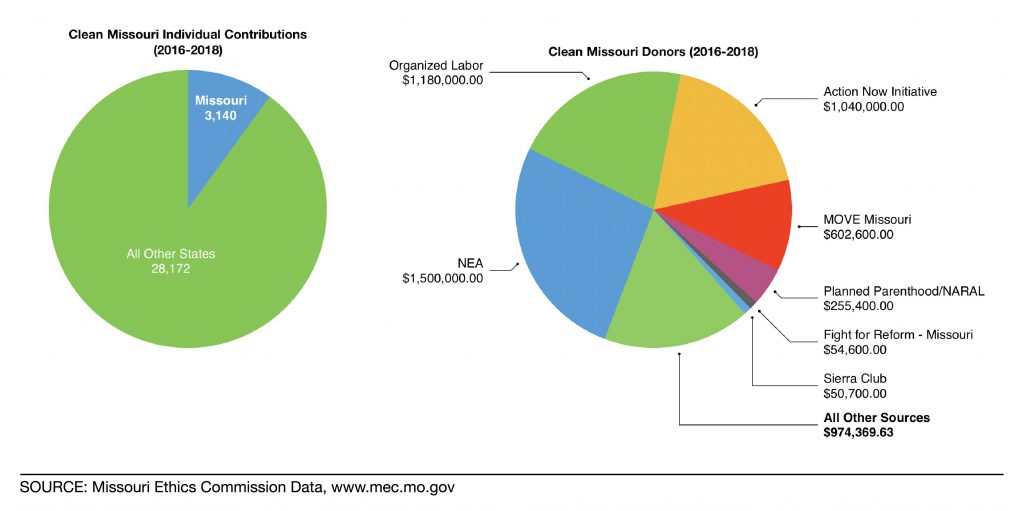
Presenting an Alternative Legislative Redistricting Plan
After a marathon debate last week and additional debate this week, my colleagues and I voted on Tuesday to adopt Senate Joint Resolution 38, an alternative redistricting plan to the one created by an organization called Clean Missouri. This proposal, if approved by voters, would put legislative redistricting into the hands of an independent, bipartisan, citizen-lead commission. To help readers better understand the situation in which we find ourselves, let’s walk through Missouri’s redistricting process before and after Clean Missouri.
Before Clean Missouri, an independent, bipartisan, citizen-lead commission drew legislative districts—not lawmakers. The law required the districts to be equal in population, compact, contiguous and to preserve entire communities to the greatest extent possible. By and large, our district boundaries today follow county lines, city limits, major roads and natural features like rivers. In fact, I believe these are precisely the kinds of rules you put into place to prevent gerrymandering—or those long, snake-like districts designed to pick and choose whose voices to amplify and whose voices to dilute. Then came so-called Clean Missouri.
For those who don’t know, Clean Missouri was a constitutional amendment sponsored by out-of-state interest groups. That’s not hyperbole—the numbers reported in Clean Missouri’s campaign finance records bear that out. According to the Missouri Ethics Commission, 90 percent of the organization’s campaign contributions came from outside Missouri; only 10 percent came from inside Missouri. If that wasn’t stunning enough, the NEA, organized labor, Planned Parenthood, NARAL, the Sierra Club and groups like Action Now Initiative and MOVE Missouri contributed 83 percent of the total $5.6 million spent to pass Clean Missouri’s ballot initiative.

Why are these special interests and non-Missourians so invested in changing our state’s constitution? The truth is we just don’t know—and we probably never will. As a result, we now have what I believe is a vague, sloppily written amendment in our constitution that will leave Missourians wondering what they actually voted for.
Clean Missouri eliminated Missouri’s independent, bipartisan, citizen-lead redistricting process and placed redistricting in the hands of a newly created state demographer. Who does this person answer to? Clean Missouri doesn’t say. What qualifications should this person have? Clean Missouri doesn’t say. If a person or community feels they’ve been harmed by the legislative maps the demographer produces, what legal remedies do they have? Clean Missouri doesn’t say. The list of questions and lack of answers goes on and on and on.
In addition to creating an all-powerful government official to draw legislative districts, Clean Missouri changed the priorities by which our districts are drawn. Clean Missouri actually puts compactness and contiguity at the bottom of the list and instead favors “fairness” and “competitiveness.” This means, for example, that if we have a largely conservative rural community and a largely progressive urban community side-by-side, instead of keeping both communities whole and in their own unique districts with their own unique voices, these communities could potentially be split up into multiple, snake-like districts drawn to minimize their voices and maximize “fairness.” I believe this is insulting, it’s ridiculous and it’s gerrymandering, plain and simple.
Instead, SJR 38 builds on the positive aspects of Clean Missouri, like banning all lobbyist gifts and tightening campaign contribution limits. Senate Joint Resolution 38 would restore our independent, bipartisan, citizen-lead redistricting process and would prioritize the principles of compactness, contiguity and preserving whole communities. Senate Joint Resolution 38 even includes a compromise to continue to include “fairness” and “competitiveness” in the redistricting criteria. In addition, SJR 38 has been drafted, debated and scrutinized out in the open—by the public, their elected representatives and the press. If passed by the Legislature, it will ultimately be up to Missouri voters to accept or reject SJR 38 at the ballot box.
It is an honor to serve you in the Missouri Senate. Please do not hesitate to contact my office at (573) 751-3678 or by email at dave.schatz@senate.mo.gov if you have any questions or concerns — we are honored to serve you.
